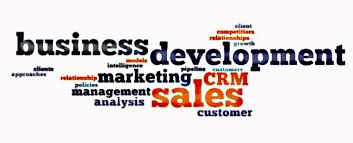There are two camps out there—one that equates the function of business development with that of sales and the other which correctly says the two roles are distinct. WVF urges you to get out of the jungle of jargon and understand the difference in the two functions. Further, when you fully appreciate the distinction between the two responsibilities, you will discover the benefits of separating them as you grow your team.
Business development is a strategic approach at growing an enterprise that can involve:
- Expanding into new markets within your sector or even in a vertical market.
- Mitigating distribution and manufacturing costs through strategic research and networking.
- Customizing an existing product or service to fit the specifications of a potential buyer with special ongoing needs.
- Building strong relationships with key entities to ensure consistent, future sales of your product or service.
Sales is closing in on the deals derived from successful business development. It’s just one end result of building relationships with potential buyers and vendors. In most cases, guess who is playing the dual role of business development and sales? You are, of course. We’ll show you how.
When business development is executed right, then opportunities for sales abound and you (or your reps) can more easily close the deal. At its most efficient, business development makes your firm less reliant on one-off sales and more immune to the volatility of the marketplace and fickleness of individual buyers.
Getting started
What aspect of your unique selling position should you leverage to get the attention of each segment of your market? For example:
- Your approach to Whole Foods is different than your pitch to individual buyers on your mailing list for that same retail product.
- Do you offer training or coaching services? Developing a relationship with the human resource department of a company (both large and mid-size) is more potentially lucrative than appealing to individuals to sign up for your one-on-one instruction.
- Run a fitness studio or wellness business for teens? Wouldn’t you have more potential revenue selling to, say, a school rather than appealing to just your list of parents in the community?
Revisit your competitive research, gathering market feedback and maybe even rethinking your unique selling position—your value to potential customers beyond what others in your space are offering.
In the retail space? Business development for you might entail finding a manufacturer who can lower the production cost of your product or provide better inventory options that reduce your fulfillment costs. Such a partnership can give you a more leeway in your pricing strategy to drive higher revenues. What if you can identify a new vendor who can supply a machine part at a much lower cost, allowing you to keep your current pricing and have more revenue hit your bottom line? That’s business development, not sales.
Once you have closed a deal with at least one partner, you are ready to roll out your market test by identifying more partners with similar qualities or assets. If the outcome of the partnership is revenue (versus optimizing manufacturing, inventory or some other operating cost, for example), this is the point the lead goes over to your salesperson for closing and the all-important customer care. Such a handoff allows the business development manager to keep up the momentum of building profitable relationships.
As an entrepreneur, you wear many hats but you need to appreciate the different level of skills required of a business development manager versus a salesperson. If you have sales staff, think again what you are asking of them. Do they have the analytical and research skills to do business development or are they uniquely talented as closers and account managers?
See the advantage of thinking differently about business development and sales—whether you are wearing both hats or not?

